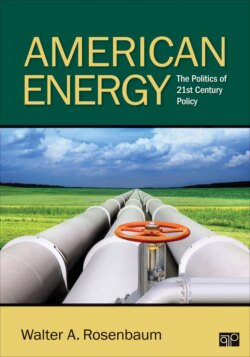Читать книгу American Energy - Walter A. Rosenbaum - Страница 17
На сайте Литреса книга снята с продажи.
Incrementalism, “Punctuated Equilibrium,” and Lurches
ОглавлениеThe governmental institutions created by the Constitution strongly encourage the incremental pace of policymaking, familiar to American government, in which “what is feasible is that which changes social states only by relatively small steps.” Hence, decision makers, concerned with energy or otherwise, typically consider, among all the alternative policies that might be imagined to consider, only those relatively few alternatives that represent small or incremental changes from existing policies.16
But institutions and policymakers are sometimes shaken out of this deliberate pace by a potent fusion of sudden events and mobilized political interests that force rapid policy acceleration and innovation, producing what leading policy scholars Frank Baumgartner and Bryan Jones have characterized as a pattern of “punctuated equilibrium.” In broad perspective, they note, “American political institutions were conservatively designed to resist many efforts at change and thus to make mobilizations necessary if established interests are to be overcome. The result over time has been institutionally reinforced stability interrupted by bursts of change. These bursts have kept the US government from becoming a gridlocked Leviathan despite its growth in size and complexity since World War II.”17 Thus, American policymaking is characterized by “long periods of relative stability or incrementalism interrupted by short bursts of dramatic change.”18
These bursts of change, often called “shocks” and “lurches,” have power but not always endurance. Perhaps the most powerful shocks to American energy policymaking since World War II were the “energy crises” of the 1970s, created by the sudden blockade of oil exports to America by Middle Eastern states. The resulting domestic petroleum shortfall badly disrupted the American economy, inspired consumer alarm, and rapidly elevated gasoline prices, compelling the federal government to hurriedly initiate new energy price controls, production regulations, and even some energy rationing. But few of these rapid policy lurches survived beyond the mid-1980s.
